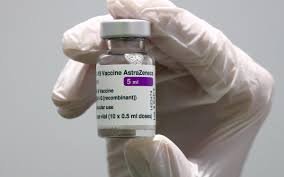City to receive ‘initial batch’ of nearly 6,000 doses of monkeypox vaccine

The city Department of Health has announced that the five boroughs will receive an initial batch of nearly 6,000 doses of monkeypox vaccine from the federal government.
The agency said appointments for the monkeypox vaccine at the temporary clinic in Chelsea will be made available once the doses arrive next week. The department said it is working to secure more doses in the coming weeks.
Eighty-seven people in the city have tested positive for orthopoxvirus, according to the Health Department, which called those cases “likely monkeypox.” The state as a whole has the largest number of cases nationwide, according to CDC data.
The announcement comes a day after Gov. Kathy Hochul had a call with Dr. Ashish Jha and Dr. Raj Panjabi of the White House to discuss a plan to meet the need of monkeypox vaccinations for New Yorkers.
“Through the public health partnerships and collaboration efforts already in place, New York will soon have 8,195 doses available,” Hochul said in a statement Thursday. “We will continue to work with Dr. Jha and the federal government to ensure future allocations reflect the needs of New Yorkers.”
The Biden-Harris administration’s first phase of its national monkeypox vaccine – which the White House released details for on its website earlier this week – will allocate 296,000 doses of the JYNNEOS vaccine over the coming weeks, including 56,000 doses immediately.
According to the White House, a combined 1.6 million additional doses will be made available this year.
Monkeypox can be spread through direct contact with a rash or sores of someone who has the virus, through contact with clothing or bedding for that has been used by someone infected with the virus, or from respiratory droplets passed in “prolonged close contact,” the city said.
Other early symptoms for monkeypox may include fever, headache, swollen lymph nodes and exhaustion.
The department recommends that in order to prevent exposure, people should not engage in sex or other close physical contact if you or your partners are sick or have an unexpected rash or sores on the body.



